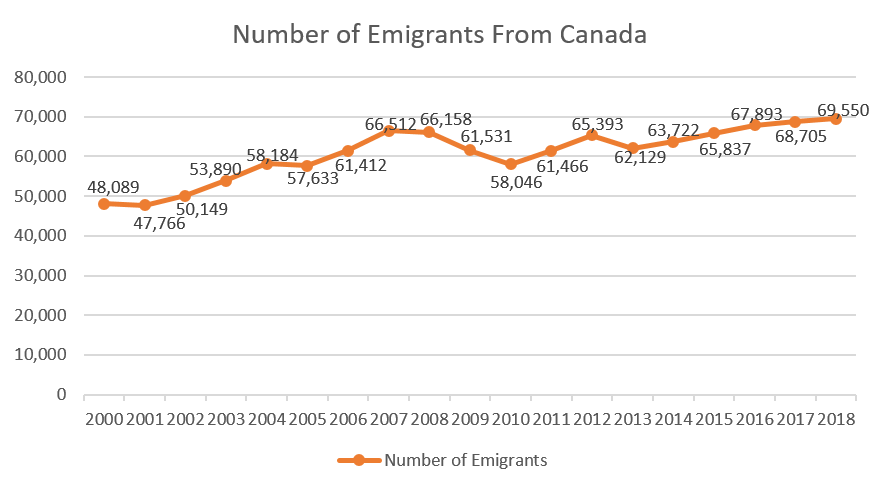Important: The GCConnex decommission will not affect GCCollab or GCWiki. Thank you and happy collaborating!
Immigration, Emigration and Retention (Under Development)
File:Outmigration Presentation 20191009.pptx
Emigration
Permanent emigration refers to Canadian citizens or landed immigrants who leave Canada to acquire permanent residency in another country, while temporary emigration refers to Canadian citizens and immigrants living temporarily abroad who have not maintained a usual place of residence in Canada
Outmigration
The action of leaving one place to settle in another, especially within a country.
Immigrant Retention
Increased immigration is designed to tackle the issue of retention, but once permanent resident status is issued, a newcomer is free to live anywhere in Canada. And in a significant number of cases, they decide to leave. Simply increasing immigration will not solve economic and demographic issues in Atlantic Canada. The real challenge is immigrant retention. New Brunswick, Newfoundland & Labrador, Nova Scotia and Prince Edward Island are all struggling with the economic impact of an aging population and shrinking labour force. Between 2011 and 2015, Nova Scotia retained 72 per cent of its immigrants, compared to 56 per cent in Newfoundland & Labrador, 52 per cent in New Brunswick and just 18 per cent in Prince Edward Island. Every other Canadian province has a retention rate of 80 per cent or more.
PTs/Territories Business with Top 20 Franco Countries
| Emigration/Outmigration Estimates | Retention | Determinants of Outmigration | Tracking and Monitoring Outmigration | Impacts of Outmigration | Policy and Research Implications |
|---|---|---|---|---|---|

